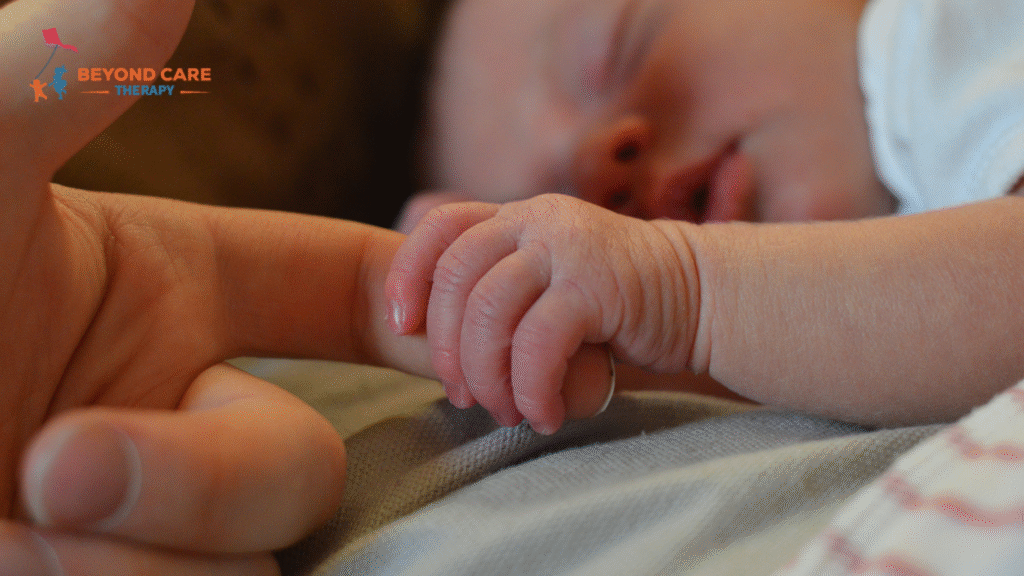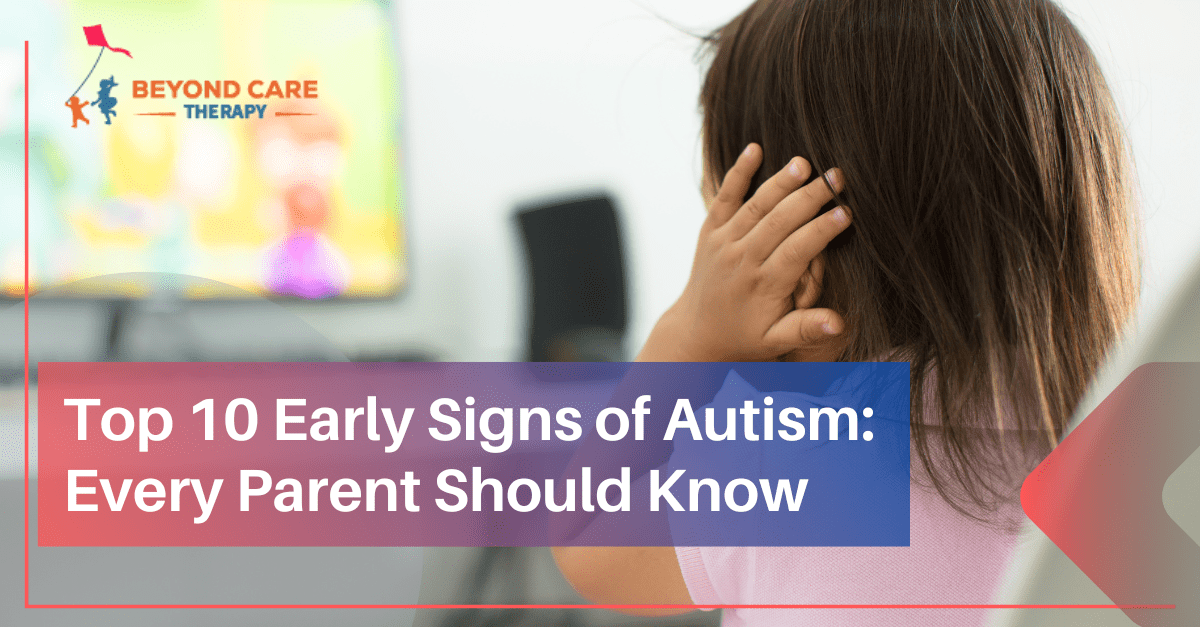Key Points of Early Signs of Autism
- Early detection is vital: Recognizing the early signs of autism can lead to timely intervention, making a significant difference in your child’s development.
- Tailored interventions: Programs like our ABA therapy at home provide customized strategies aimed at improving your child’s social skills and behaviors.
- Stay informed and proactive: Being aware of the signs of autism in toddlers helps empower parents to seek help if needed, ensuring their child receives the best possible support.
Understanding Autism Spectrum Disorder
Autism Spectrum Disorder (ASD) is a complex neurodevelopmental condition that impacts communication, behavior, and social interaction. It exists along a wide spectrum, meaning that individuals with ASD can display a variety of symptoms and skill levels. Some may be non-verbal and require considerable support, while others may possess high verbal skills and function independently.
Understanding the early signs of autism is crucial for parents who want to ensure their child gets the support they need early in their development. The sooner these signs are identified, the sooner interventions can be implemented, leading to better outcomes for the child.
At Beyond Care Therapy, we specialize in providing effective ABA therapy services tailored to the individual needs of children with autism, ensuring compassionate care.
How to Identify Autism Early?
Identifying autism early is crucial for facilitating timely intervention and support. Parents and caregivers should observe their child’s developmental milestones closely and look for the early signs of autism. These may include minimal eye contact, delayed speech development, and a lack of interest in social interactions.
Utilizing comprehensive autism therapy techniques such as structured play, communication exercises, and tailored behavioral strategies can also aid in recognizing signs early. It’s essential to consult with healthcare professionals if concerns arise. Early evaluation and intervention can significantly benefit a child’s developmental trajectory, leading to more effective support strategies.
Concerned about your child's development?
Reach out to us now for a consultation. At Beyond Care Therapy, we offer tailored consultations to help identify the best support options for your child’s unique needs.

The Top 10 Early Signs of Autism
Here are the 10 most vital signs of ASD to look out for:
1. Little or No Eye Contact
By six months, children typically begin making eye contact. A child showing early signs of autism may avoid eye contact, appearing indifferent to those around them. This lack of connection can significantly hinder their social interactions as they grow older. Eye contact is crucial as it forms the basis of non-verbal communication; thus, parents should pay attention if their child consistently turns away during exchanges.
2. Delayed Speech Development
Many children with autism exhibit delays in speech. For instance, by age two, a typical child may speak several words, while a child with autism might articulate only a few or show unusual speech patterns, such as repeating phrases (echolalia). Watch for any concerns regarding articulate speech or language milestones. Early speech and language assessment can provide valuable insights for potential intervention.
3. Lack of Joint Attention
Joint attention refers to the ability to share focus on an object with another person. Children with autism may fail to look back and forth between their parents and an object of interest, missing vital opportunities for social interaction that promote communication. This skill typically develops in the first year of life and is foundational for social development. Activities like pointing to objects and checking with parents for reactions are good indicators of joint attention.
4. Limited Social Interaction
Kids with autism may show less interest in engaging or playing with other children. They might lean toward solitary activities and communicate less verbally, leading to difficulties in forming relationships. It is essential to facilitate social interactions from an early age to help your child establish connections with their peers.
5. Repetitive Behaviors
Children displaying early signs of autism often engage in repetitive behaviors, such as hand-flapping, rocking, or spinning. They may fixate on specific topics or toys and display unusual play behaviors that differ from their peers. While it’s normal for all children to have specific interests, the intensity and duration of interests in children with autism may be pronounced and all-consuming.

6. Sensitivity to Sensory Input
Children with autism frequently experience sensory processing challenges. They may react strongly to lights, sounds, or certain textures, demonstrating either heightened or diminished responses to sensory experiences. For example, they may cover their ears during loud noises or feel distressed by the texture of certain clothing. Understanding their sensory needs can help parents create a more comfortable environment.
7. Difficulty with Routine Changes
Kids on the spectrum often thrive on consistency and routine. Changes to their environment or activities can trigger significant distress, highlighting their need for predictability. When planning activities, it’s advisable to prepare your child for any transitions and offer support when changes occur, as a consistent approach can alleviate anxiety.
8. Problems with Communication
Difficulty using gestures and facial expressions is common in children on the autism spectrum. This can hinder their ability to express feelings or needs, contributing to misunderstandings with others. Encouraging communication through simple signs or visual aids can assist them in expressing themselves more effectively.
9. Playing with Toys Uniquely
Instead of using toys as intended, children with autism may play with them in unconventional ways, such as spinning the wheels of a toy truck instead of engaging in more imaginative play. Observing these patterns can provide insights into their cognitive and imaginative development, which can guide the choice of appropriate toys and activities for fostering creativity.
10. Delayed or Limited Social Emotions
A child with autism may exhibit less emotional responsiveness in social settings. For example, they might not smile in response to another child’s smile or may appear indifferent in situations where one would expect a social or emotional reaction. Monitoring emotional reactions to everyday scenarios can help establish a framework for appropriate social responses.
* Tip: If you suspect your child may be showing signs of autism, consider keeping a diary of their behaviors and milestones. This documentation can be invaluable during evaluations with healthcare providers.

Early Intervention: The Key to Success
Recognizing the early signs of autism is essential for parents who want to pave the way for their child’s developmental success. The earlier an autism diagnosis is made, the faster children can receive interventions such as ABA therapy for social skills. These therapies have been shown to improve key areas of functioning, including communication, social skills, and behavior management.
If you suspect your child is showing these signs of autism in toddlers, consider documenting their behaviors and milestones. This information can prove invaluable during evaluations with healthcare providers, allowing for a comprehensive assessment and tailored interventions.
One practical step is to actively engage with your child in various social settings. Encouraging interactions with peers through structured playdates can enhance social skills and provide opportunities for practicing communication in a natural environment. Additionally, using visual schedules and social stories can help children navigate social situations more comfortably.
Conclusion:
Understanding the early signs of autism is crucial for parents aiming to provide their children with the best support. Timely interventions, such as those offered by Beyond Care Therapy, lead to meaningful improvements in development and overall quality of life.
Would you like to learn more about our services and begin the journey toward realizing your child’s potential?
Contact us today to schedule a consultation! Early support makes a world of difference for your child’s future.
Frequently Asked Questions
Q: What are the earliest signs of autism in toddlers?
The earliest signs of autism in toddlers include a lack of eye contact, delayed speech, and reduced engagement in social interactions. Repetitive behaviors and sensitivities to sensory input also serve as indicators.
Q: How do I know if my child has autism?
If your child shows multiple early signs of autism consistently and exhibits delays in social skills or communication, it’s advisable to consult a professional for an evaluation.
Q: At what age can autism be diagnosed?
Some signs of ASD can be observed as early as 12 months, but a reliable diagnosis generally occurs between 18 months and 2 years of age.
Q: Is a lack of eye contact a sign of autism?
Yes, prolonged lack of eye contact can be a significant indicator of autism, correlating with future challenges in social communication.
Q: What should I do if I notice signs of autism in my child?
It’s important to consult your pediatrician or a specialist immediately if you notice concerning signs of autism. Early evaluations and intervention options like ABA therapy at home can make a significant difference.

